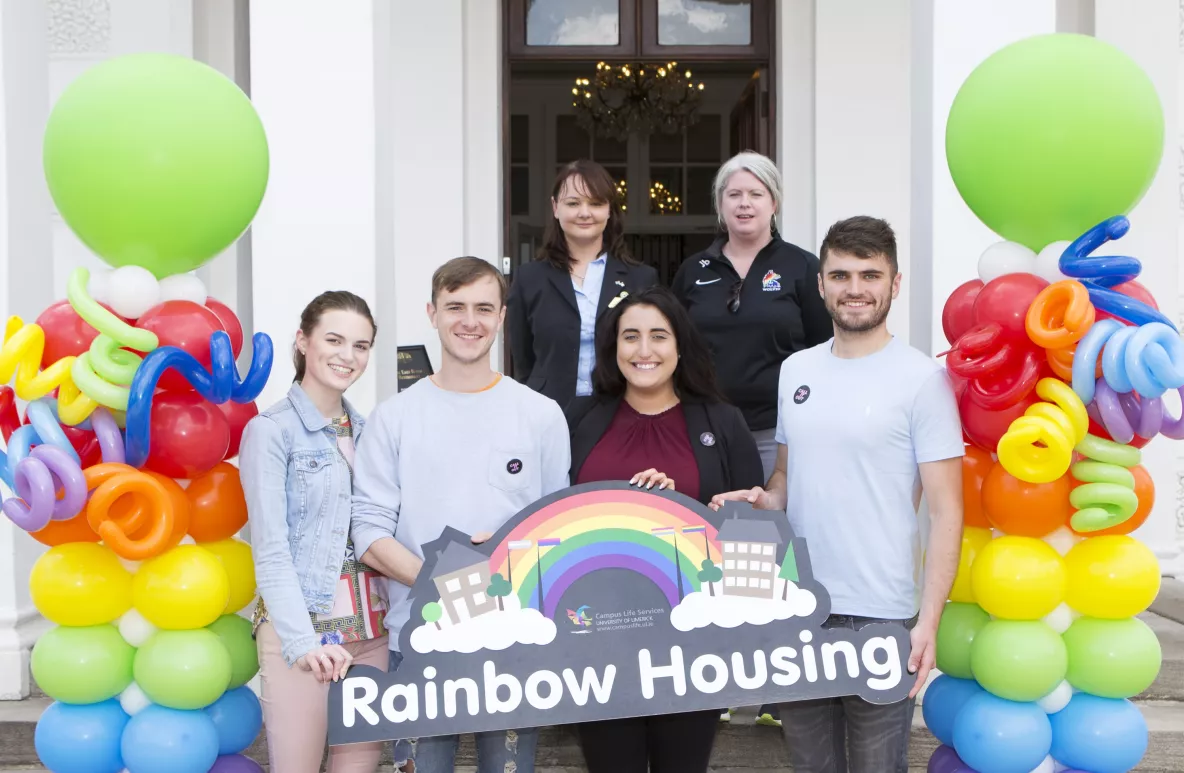
Ireland’s first ‘Rainbow Housing’ initiative for students who live on campus has been launched at University of Limerick.
Rainbow housing is for students who wish to live together in a house/apartment that supports the lesbian, gay, bisexual, transgender, queer, questioning, intersex and allied community at UL.
Residents of rainbow housing create and maintain a living space that is affirming to all sexual and gender identities.
UL is the first university in Ireland the second across the UK and Ireland to provide rainbow housing for its students living on campus.
Organisations that have pledged to support the initiative include Limerick Pride and GOSHH (Gender, Orientation, Sexual Health, HIV) Limerick.
Campus Life Services, who provide on-campus accommodation at UL, will now offer the option for students to apply for rainbow housing when submitting an application for their seven residences, which house over 2,800 students in UL.
Campus Life Services Village Manager Carol-Jane Shanley said the initiative has already received nearly 200 applications from over 30 different countries for the upcoming academic year.
Ms Shanley said: “Campus Life Services has long been committed to providing the best student living experience for students at the University of Limerick. This involves ensuring high quality accommodation facilities and service in a secure environment for all of our residents. It is with this intention of providing a secure, safe living environment for all residents that we came up with the rainbow housing programme.
“What if a student who was struggling with their sexual or gender identity didn’t have to reach out to a person they didn’t know, who didn’t know about their experiences and didn’t understand their journey? What if all they had to do was knock on their housemates bedroom door, sure in the knowledge that not only would their housemate be able to sympathise with what they were experiencing, but also empathise?
“We are not naïve enough to assume that rainbow housing will solve the problems of every LGBTQIA student in UL. There are still a large amount of issues that need to be tackled within the University. However, it can create the conversation in which people can learn from one another. The best way to fight homophobia and transphobia is to educate and that is what we hope to do with rainbow housing."
Dr Amanda Haynes, Co-director of UL’s Hate and Hostility Research Group, said: “UL will be enriched by the presence on campus of a resource that encourages all of our LGBT students and allies to be active, critical, political, disruptive and constructive contributors to our collective campus life.
“Rainbow housing is not about self-segregation. It's about giving LGBT students access to a supportive base in which to launch themselves confidently, proudly, and assertively in to campus life. For those LGBT people who choose not to live in LGBT housing, and there will be many, the presence of rainbow housing is just as important. It provides visibility for the community on campus which, for students in many cases coming from schools where they may have felt culturally invisible, can be very impactful.
“In addition, the University’s introduction of rainbow housing sends out a clear message to all students, whatever their identity, that this campus intends to be a safe and inclusive space for LGBT people.”
UL PhD student Alena Kiel welcomed the initiative, saying it was “really meant to be a safe space, basically. I can’t tell you scary it is to live with people you have never lived with before, period. And as a queer person, as a trans person, coming out to my house mates who didn’t necessarily speak English, didn’t necessarily have the same level of awareness that I did – it was really, really scary.
“What Rainbow Housing aims to do, is to take that one barrier away and to just ensure that it is not going to be such a scary experience coming out. Nobody is going to be forced into Rainbow Housing, it is not an enforced segregation type thing, nobody is going to be there who doesn’t want to be there,” they added.